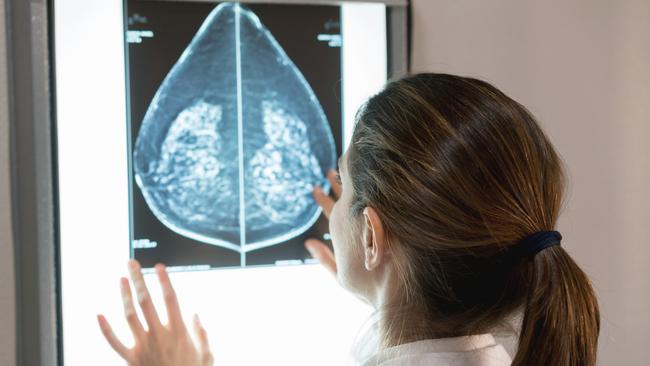Early detection key focus in cancer war
To mark World Cancer Day, the Union for International Cancer Control has launched a three-year campaign to improve early detection.

To mark World Cancer Day this week, the Union for International Cancer Control launched a three-year campaign to improve early detection.
Titled “I Am and I Will”, the campaign is intended to encourage individuals, the health sector and governments to improve public awareness and access to early detection, screening and diagnosis. Australia has well-regarded, government-funded screening programs for breast cancer, bowel cancer and cervical cancer, yet not everyone who could benefit takes part.
In a recent report, the Australian Institute of Health and Welfare noted that Breastscreen Australia reached only 52.7 per cent of women in its target age group, while only 41.3 per cent of participants eligible for the National Bowel Cancer Screening Program made use of the tests.
Cancer Council Australia recently received $10 million in commonwealth funding for an advertising campaign to promote the benefits of bowel cancer screening.
The five-year survival rate for bowel cancer is 99 per cent if detected early, yet more than 100 Australians die each week as people continue to avoid being screened.
“People diagnosed with early-stage cancer had high survival across all age groups. However, people with late-stage cancer at diagnosis had lower relative survival and this became progressively lower in subsequent years from diagnosis,” says Cancer Australia chief executive Helen Zorbas.
“I encourage all Australians aged between 50 and 74 to act on the invitation to screen every two years. It is also important for people of all ages, irrespective of participation in the National Bowel Cancer Screening Program, to recognise possible bowl cancer symptoms and have them investigated early.”
Symptoms include a change in bowel habit, rectal bleeding, unexplained weight loss, unusual tiredness and fatigue and abdominal pain, cramping or bloating.
The Therapeutic Goods Administration last month advised that 76 Australian women had been diagnosed with anaplastic large cell lymphoma associated with certain textured breast implants.
ALCL is different from breast cancer, for which self-examination and screening programs are recommended, and has prompted a new monitoring program to better protect women.
Monash University’s Australian Breast Device Register has enlisted 90 per cent of eligible surgeons to help track the long-term safety of implantable breast devices.
“With the number of these surgeries rising worldwide, it is increasingly important that we track and report on potential trends and complications associated with breast devices, as well as identify surgical techniques that give patients the best outcomes,” says Monash University’s Ingrid Hopper.
“We do need all Australian doctors implanting breast devices to be in this important public health initiative to derive maximum benefit for their patients.”
A study has reiterated there is no link between the use of mobile phones and the incidence of brain cancer in Australia.
The study was conducted by the Australian Radiation Protection and Nuclear Safety Agency, The University of Wollongong, Monash University and the University of Auckland and published in the British Medical Journal Open.
Researchers looked at the 16,825 diagnoses of brain cancer between 1982 and 2013 and found no increase in diagnosis rates to correspond with the surge in mobile phone use. Despite a notable surge in mobile phone use since 2003, there had also been no increase in tumours of the temporal lobe, which is the location most exposed when using a mobile phone.
ARPANSA suggests anyone still worried about their health while using a mobile phone to call hands-free, limit call time, avoid calling in areas with poor reception or send a text message instead.
Australia may be the first country to eliminate cervical cancer through the groundbreaking human papillomavirus vaccination program and the national screening program.
According to research published in The Lancet Public Health last year, cervical cancer is likely to be considered a rare cancer by 2022, and decline to the point of elimination by 2035, if vaccination and screening trends are maintained.
“To achieve elimination, it’s vital that women continue to participate in the National Cervical Screening Program and that girls and boys are vaccinated against HPV through the national HPV immunisation program,” says Karen Canfell from Cancer Council NSW.
“Under the new screening program, women should have their first screening test at age 25 and then every five years, if no high-risk HPV is detected. Those who have previously had the Pap test should have their next cervical screening test two years after their last Pap test, after which they can move to screenings every five years.”



To join the conversation, please log in. Don't have an account? Register
Join the conversation, you are commenting as Logout